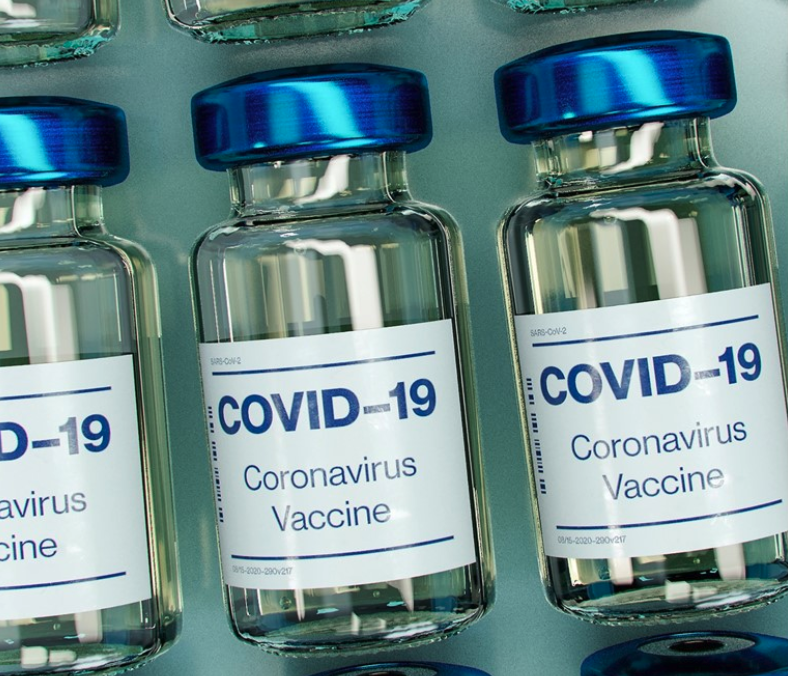Can Covid-19 vaccination be mandatory?

Obligation to vaccinate against Covid? What article 32 and reality say. Luigi Olivieri's letter, published on the Phastidio.net blog, edited by Mario Seminerio
The issue of the presumed freedom not to get vaccinated or, better still, the right not to get vaccinated has inexplicably risen to the fore in a public debate unable to understand the dictates of the rules and impervious to the rulings of the Council.
The interpretation of the norms is entrusted to those who have very little confidence with the law, while the investigations of the constitutionalists and jurists are branded as interventions of "professors", incomprehensible and tendentious.
Of the article 32 of the Constitution a totem has been made, without understanding its real meaning. The rule is very simple:
The Republic protects health as a fundamental right of the individual and the interest of the community, and guarantees free medical care to the indigent.
Nobody can be obliged to a specific health treatment except by law. The law cannot in any case violate the limits imposed by respect for the human person.
On the social networks there is an underlined comment in the Bignami style, concise and incomplete, which leaves the "freedom not to get vaccinated" as an inviolable right to the inexperienced of law. This is not the case at all.
A LAW FOR OBLIGATION
By accessing these links it is possible to understand, if you want to learn more, that it is perfectly possible to force yourself to be vaccinated. But, it is enough to know how to read, using very simple tools for understanding the text, article 32, to understand that it is constitutionally legitimate to provide for the obligation of the vaccine.
In fact, reading the second paragraph of article 32 on the contrary, it should be understood as follows: a specific health treatment can be imposed on each citizen only by law. And the third paragraph must be read in the sense that the imposition by law of a medical treatment must not cause harm to the human person: the treatment, therefore, cannot be imposed at risk and without the provision of caution and possible compensation, in the case of prophylaxis damage.
THE CONSULTA HAS ALREADY EXPLAINED
These concepts are perfectly explained by the sentence of the Constitutional Court 307/1990:
The law imposing a health treatment is not incompatible with art. 32 of the Constitution whether the treatment is aimed not only at improving or preserving the state of health of those subjected to it, but also at preserving the state of health of others, since it is precisely this further purpose, relating to health as an interest of the community, to justify the compression of that self-determination of man which is inherent in everyone's right to health as a fundamental right.
In fact, many vaccines and health treatments have always been mandatory by law.
In relation to the third paragraph of article 32 of the Constitution, the same sentence of the Consulta 307/1990 adds:
With reference, on the other hand, to the hypothesis of further damage to the health of the subject subjected to compulsory treatment – including the disease contracted by contagion caused by prophylactic vaccination – the constitutional importance of health as an interest of the community is not alone sufficient to justify the measure sanitary. This observation requires that in the name of it, and therefore of solidarity with others, each one can be obliged, thus remaining legitimately limited his self-determination, to a given health treatment, even if this involves a specific risk, but does not postulate the sacrifice of health of each to protect the health of others.
A correct balance between the two aforementioned dimensions of the value of health – and the same spirit of solidarity (obviously to be considered reciprocal) between the individual and the community that is at the basis of the imposition of health treatment – implies recognition, for the case that the risk come true, of a further protection in favor of the passive subject of the treatment. In particular, the minimal content of the right to health guaranteed to him would end up being sacrificed, if he were not in any case assured, at the expense of the community, and for it of the State that disposes of the compulsory treatment, the remedy of an equitable restoration of the damage suffered ".
There seems to be no residual doubts about the abstract possibility that Parliament will legislate on the mandatory nature of the anti Covid-19 vaccine, producing a law capable of obtaining the balance of interests highlighted by the Council.
THE CONTRACTUAL OBLIGATION
The fact is that those who appeal to radical and erroneous readings of article 32 of the Constitution, claiming freedom and non-existent absolute rights, do not realize that in any case access to services and, indeed, to freedom is not regulated only by the State and by law, but also by contracts and commercial practices.
It is a fact that transport companies have every interest (at the same time selfish in terms of their interest, but indirectly general, for the effects that their cautions produce) to allow travel in their vehicles only those who demonstrate to have been vaccinated: in this way, in fact, they ensure the reduction of the huge costs associated with the necessary safety measures.
It is equally possible that any other merchant or professional can claim to entertain negotiating relationships with those who can reasonably ensure that they are not a potential carrier of the virus.
Letter published on the Phastidio.net blog.
This is a machine translation from Italian language of a post published on Start Magazine at the URL https://www.startmag.it/sanita/la-vaccinazione-anti-covid-19-puo-essere-obbligatoria/ on Fri, 01 Jan 2021 06:37:28 +0000.
